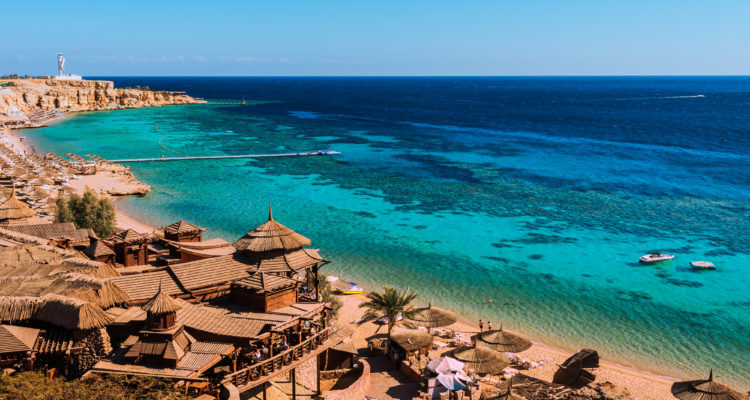Even though travel warnings were in effect for years, Israeli tourists kept going to the popular Egyptian beaches unless the border was closed.
By Batya Jerenberg, World Israel News
For the first time in fifteen years, Israel has lowered the threat level in the most popular Egyptian tourist areas of the Sinai Peninsula, the National Security Council (NSC) announced Wednesday.
According to the NSC, the fear of terror attacks occurring in the resort city of Sharm El Sheikh and the beaches along the Red Sea shore has dissipated to the extent that the official threat level could be dropped two spots from the highest level it had endured for so long.
The Level 1 warning is still in place for the northern part of the Peninsula, closest to Israel, meaning that the government recommends that no one travel there and that anyone already there should leave. The threat of attack, especially from ISIS extremists there, is considered too high for civilians’ safety.
The American State Department also considers Sinai to be a security problem, and enjoins its citizens not to travel there, except by air straight to Sharm El Sheikh.
Israeli tourists have always gone in their droves to the southern end of Sini, however, to enjoy the water and unique coral reefs in the area. They were not deterred even after the Peninsula was handed back to Egypt following the 1979 peace agreement, and did not stop traveling there even after terror attacks began targeting tourists in the late 1990s, which eventually led the Israeli government to periodically issue stern travel warnings to the region.
In possibly the worst attack to target Sharm El Sheikh, an Islamist group affiliated with al-Qaeda set off three bombs in July 2005, killing 83 and injuring some 200 people, mostly Egyptians. After that, Cairo erected a separation barrier around the city to protect it from attack from the nearby Bedouin communities, where it claimed the perpetrators had come from.
Deterring the intrepid Israeli travelers only worked by actually closing the border. This, however. almost never happened, even when the security situation was considered dicey. The COVID-19 pandemic managed to shut the doors for a full year, with the Taba crossing only reopening at the end of March.
Prime Minister Naftali Bennett informed Egyptian Intelligence Minister Abbas Kamel of the decision on Wednesday, when the general came to discuss Egyptian mediation efforts with Hamas, among other diplomatic and security issues. The travel warning has been a sore point with Cairo for years, as tourism is a very important source of revenue for the government.




